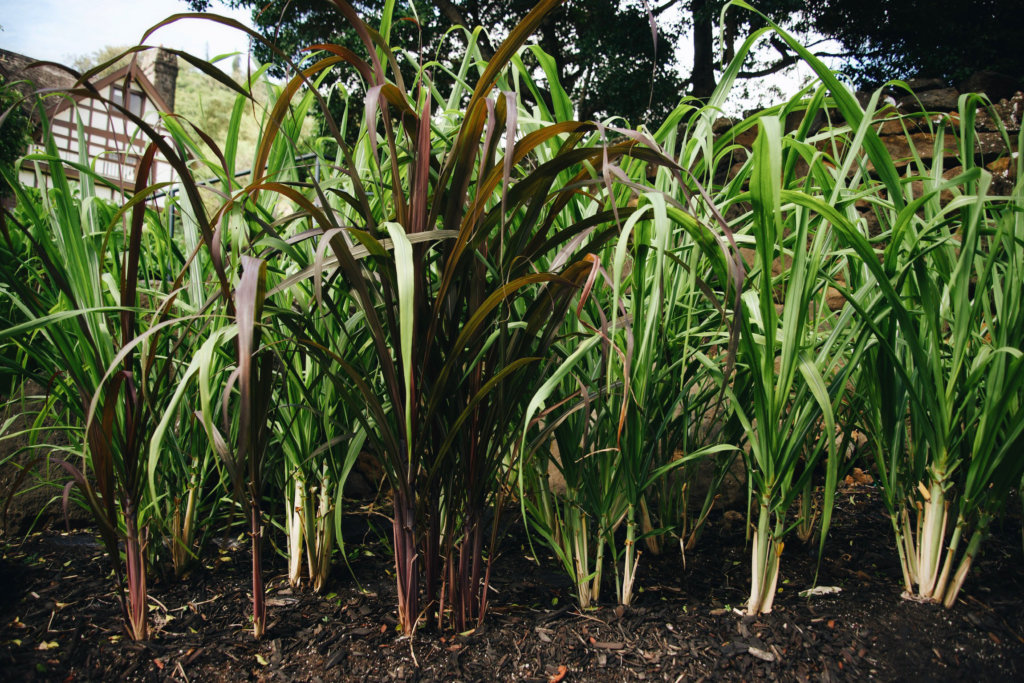Sugar and Cane: A Sweet Pairing in Health-Conscious Recipes
Sugar and Cane: A Sweet Pairing in Health-Conscious Recipes
Blog Article
Why Walking Cane Sugar Processing Chemicals Are Critical for Modern Sugar Refining
The function of cane sugar processing chemicals in contemporary sugar refining can not be overemphasized, as they are important to improving both the efficiency of extraction and the general top quality of the last item. Representatives such as phosphoric acid and details flocculants are utilized to remove contaminations, resulting in sugar that not only satisfies customer assumptions however additionally sticks to sector requirements.
Duty of Processing Chemicals
The efficiency of cane sugar handling hinges considerably on the calculated application of handling chemicals. These chemicals play a critical duty in enhancing the effectiveness and high quality of sugar removal and refining. From the initial stages of juice removal to the final purification steps, processing chemicals facilitate different essential procedures.
In the removal stage, chemicals such as phosphoric acid and calcium hydroxide are utilized to enhance the information procedure, aiding to get rid of contaminations and put on hold solids from the walking stick juice. This not only improves the yield but likewise makes sure the quality of the end product. Furthermore, agents like flocculants help in the fast settling of contaminations, therefore enhancing the overall procedure.
Triggered carbon and ion exchange resins serve to eliminate color and smell, making certain that the polished sugar meets customer quality standards. Thus, the careful option and application of these chemicals are important for achieving ideal results in cane sugar processing.
Key Kinds of Chemicals
Walking cane sugar processing depends on a range of vital chemicals that assist in each phase of production. These chemicals play crucial functions in making clear, whitening, and cleansing the sugar removed from walking stick.
One main classification of chemicals includes flocculants, such as polyacrylamide, which help in the clarification procedure by promoting the aggregation and settling of contaminations. Additionally, calcium hydroxide is typically employed to neutralize acidity and aid in the removal of non-sugar components.
Bleaching agents, such as triggered carbon and sulfur dioxide, are used to decolorize the syrup, leading to a clearer last item. These chemicals help remove color substances that may impact the sugar's appearance and bankability.
Furthermore, phosphoric acid works as a pH regulator during the handling phases, guaranteeing optimal problems for the chemical tasks associated with sugar removal and purification.
Other essential representatives consist of edta (ethylenediaminetetraacetic acid), which chelates steel ions that could catalyze undesirable reactions, and salt hydroxide, which aids in pH control throughout the refining process. Collectively, these chemicals improve efficiency and ensure a high-grade cane sugar item.
Benefits for Sugar Quality
Frequently ignored, making use of particular handling chemicals dramatically enhances the overall top quality of cane sugar. These chemicals play an essential duty in refining procedures, making sure that the end product satisfies strict industry criteria for pureness and preference.

Additionally, refining chemicals aid in attaining a regular granulation and texture, which are critical for consumer approval. By controlling the formation process, these chemicals ensure that the go to these guys sugar crystals form consistently, bring about a more appealing item that liquifies well in numerous applications.
Additionally, the use of these chemicals can boost the service life of cane sugar by lessening moisture absorption and microbial growth. Overall, the tactical application of handling chemicals is necessary for delivering high-quality cane sugar that fulfills consumer expectations and sector demands.
Environmental Influence Considerations

Moreover, the energy-intensive nature of sugar refining, worsened by chemical use, typically leads to increased carbon discharges. This adds to climate change and increases problems concerning the sustainability of present refining techniques. Additionally, the sourcing of these chemicals may include methods that intimidate biodiversity, such as monoculture farming, which minimizes the resilience of agricultural ecological communities.

To mitigate these influences, sugar refiners are progressively exploring sustainable choices and adopting finest techniques that reduce chemical usage. Executing extensive environmental monitoring systems can assist make sure that the refining procedure straightens with environmental standards and promotes biodiversity. Ultimately, a well balanced approach that prioritizes both sugar top quality and ecological stewardship is necessary for the lasting practicality of the sugar market.
Future Fads in Refining
As the sugar sector grapples with the environmental challenges connected with typical refining methods, cutting-edge techniques are emerging to enhance both efficiency and sustainability. One considerable trend is the fostering of environment-friendly chemistry principles, which prioritize using safe, eco-friendly processing chemicals. This change not only reduces ecological effect but additionally addresses consumer need for cleaner manufacturing methods.
An additional promising advancement is the application of innovative purification technologies, such as membrane separation and adsorption procedures. These strategies enhance the quality and high quality of the sugar while reducing the quantity of wastewater generated during refining. Additionally, the combination of digital modern technologies, including IoT and AI, is transforming functional effectiveness by enabling real-time tracking and anticipating maintenance, thus lessening resource waste.
Furthermore, using byproducts from sugar refining, such as bagasse and molasses, is gaining traction. These products can be transformed into biofuels or value-added items, adding to a circular economy within the industry. Jointly, these fads indicate a shift in the direction of more sustainable methods that not just enhance operational efficiency but also straighten with global sustainability objectives, ensuring the future stability of sugar refining.
Verdict
Walking cane sugar handling chemicals are necessary in modern-day sugar refining, dramatically improving the performance and top quality of sugar removal. The critical use of these chemicals not just enhances the pureness and taste of the end product but additionally guarantees regular condensation and appearance. As the industry significantly prioritizes sustainability, the This Site adoption of environmentally-friendly handling representatives is most likely to shape future patterns in refining, ultimately her response resulting in better products and extended service life for customers.

Eventually, a well balanced strategy that prioritizes both sugar top quality and ecological stewardship is important for the long-lasting feasibility of the sugar sector.
Cane sugar handling chemicals are important in contemporary sugar refining, significantly boosting the effectiveness and top quality of sugar removal.
Report this page